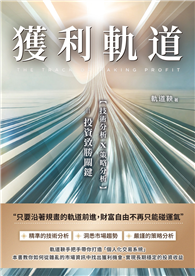The relation of the Septuagint to the original Hebrew is of major importance to the study of the Old Testament. In the closing chapters of Exodus this relation becomes notoriously obscure; in recording the execution of God's instructions for the making of the tabernacle and the priests' vestments, the Greek differs seriously both in order and content from our present Hebrew text. This raises the problem of how the Greek and Hebrew accounts came to stand in their present form, why they differ so widely, and which represents the older tradition. Scholars during the last century have been almost unanimous in maintaining that the Greek account is earlier than the Hebrew and is translated from a primitive (and now supposedly lost) text. Moreover, because of inconsistencies in technical terms, this part of the Greek Exodus is thought to be the work of a second translator. Dr Gooding puts forward a completely different explanation. This lively, clearly written and controversial book will be of particular interest to theologians and biblical scholars.
| FindBook |
有 1 項符合
The Account of the Tabernacle: Translation and Textual Problems of the Greek Exodus的圖書 |
 |
The Account of the Tabernacle: Translation and Textual Problems of the Greek Exodus 作者:Gooding 出版社:Cambridge University Press 出版日期:2009-06-11 語言:英文 規格:平裝 / 132頁 / 21.6 x 14 x 0.8 cm / 普通級 |
| 圖書館借閱 |
| 國家圖書館 | 全國圖書書目資訊網 | 國立公共資訊圖書館 | 電子書服務平台 | MetaCat 跨館整合查詢 |
| 臺北市立圖書館 | 新北市立圖書館 | 基隆市公共圖書館 | 桃園市立圖書館 | 新竹縣公共圖書館 |
| 苗栗縣立圖書館 | 臺中市立圖書館 | 彰化縣公共圖書館 | 南投縣文化局 | 雲林縣公共圖書館 |
| 嘉義縣圖書館 | 臺南市立圖書館 | 高雄市立圖書館 | 屏東縣公共圖書館 | 宜蘭縣公共圖書館 |
| 花蓮縣文化局 | 臺東縣文化處 |
|
|
圖書介紹 - 資料來源:博客來 評分:
圖書名稱:The Account of the Tabernacle: Translation and Textual Problems of the Greek Exodus
|










